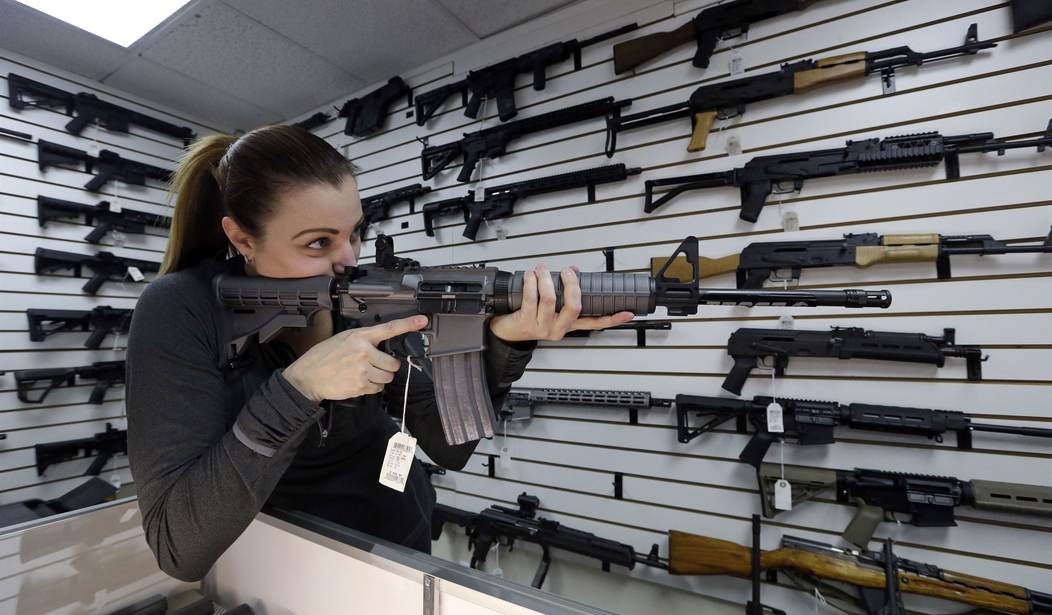If there’s a reason why Hollywood should just stay out of politics, especially gun politics, and this is your classic example. Ed Asner and Ed Weinberger, a screenwriter, decided to teach the National Rifle Association a history lesson on the left wing site Salon. It dropped a little before Christmas, and it ended with both men getting a face full of buckshot. They argued that our Founders were pro-gun control, which is odd given that the first shots fired in our American Revolution at the battles of Lexington and Concord, were in response to British soldiers trying to seize our guns. Still, let’s go through their arguments:
Now that we have your attention, let’s consider the case made by the NRA, its Congressional hired hands, the majority of the Supreme Court, and various right wing pundits who claim the Second Amendment is not simply about state militias but guarantees the unfettered right of everyone to own, carry, trade and eventually shoot someone with a gun.
[…]
First, here’s that elusive Second Amendment as it now appears in the Bill of Rights: “A well-regulated Militia, being necessary to the security of a free State, the right of the people to keep and bear Arms, shall not be infringed.”
Arguably not the clearest amendment in the Constitution. And that’s the problem with it: While stating the need for a “well-regulated Militia,” does it at the same time also guarantee the individual citizen the personal right to “keep and bear arms?” In 2008, Justice Antonin Scalia, ruling for the Majority, said that it was. Ignoring over 200 years of precedent, historical context, the Framers’ Intent and the D.C. laws of its elected officials, Scalia relied solely on the text, arbitrarily dividing the Amendment into two parts. The first – “a well-regulated militia, being necessary to the security of a free State” — he called the prefatory clause. The second part – “the right of the people to keep and bear Arms, shall not be infringed” — he called the operative clause. Claiming that second part was all that really mattered; Scalia discarded as irrelevant that inconvenient reference to a “state militia.
[…]
Here is Madison’s first draft of the Second Amendment:
“The right of the people to keep and bear arms shall not be infringed, a well-armed and well-regulated militia being the best security of a free country; but no person religiously scrupulous of bearing arms shall be compelled to render military service in person.”
Madison’s intent could not be more obvious: his Second Amendment refers only to state militias. If not, why include that exemption for what we now call “conscientious objectors?”
When Madison’s amendment was rewritten by a joint committee from the House and Senate in 1791, the “religious” exemption was lopped off as too cumbersome in language and too complex to enforce. Thus, the Amendment as it now stands.
Recommended
Okay—what am I missing here? Asner and Weinberger really just ignore the Supreme Court to peddle a recycled liberal talking point. Of course, the anti-gun Left peddled the tired and disregarded state militia provision, just as they ignore the Citizens United decision and its implications on expanding free speech rights. Also, this line, “the unfettered right of everyone to own, carry, trade and eventually shoot someone with a gun” is just pure trash. Law-abiding gun owners are not killers in waiting. Second, it’s not an unfettered right; Justice Scalia said so in the Heller decision, which they don’t mention in their piece:
Like most rights, the Second Amendment right is not unlimited. It is not a right to keep and carry any weapon whatsoever in any manner whatsoever and for whatever purpose: For example, concealed weapons prohibitions have been upheld under the Amendment or state analogues. The Court’s opinion should not be taken to cast doubt on longstanding prohibitions on the possession of firearms by felons and the mentally ill, or laws forbidding the carrying of fire- arms in sensitive places such as schools and government buildings, or laws imposing conditions and qualifications on the commercial sale of arms.
You hear that guys. You have the right to own a firearm unconnected to a militia, but states have the right to impose their own restrictions, like on concealed carry rights. This is a rather explicit recognition of federalism, along with limiting the Court’s impact so as to not produce challenges to laws prohibiting domestic violence abusers, the mentally ill, and convicted felons from owning firearms—all common sense provisions. Stephen Gutowski found some of Madison’s quotes about the Second Amendment as well. It doesn’t help the pro-gun control hypothesis that’s rather shoddy in this piece. In fact, if these two guys had read Heller, they would see it’s not some SCOTUS opinion intended to turn the country into the Wild West. Anti-gunners, you guys have lost this debate. Gun rights have expanded since this landmark 2008 decision. Every state recognize concealed carry rights, even in Washington D.C. The Second Amendment isn’t going anywhere. Deal with it.
Here's a little more on the history of the 2nd Amendment. During the debate on whether to ratify the Constitution several states offered amendment suggestions. Here's Virginia's own from June 27, 1788. pic.twitter.com/CryqVO2rqG
— Stephen Gutowski (@StephenGutowski) December 17, 2017
You'll notice very similar language but further explanation. You can see that the right of the people to keep and bear arms is written separately from the declaration of the militia's importance. It also defines the militia as the "body of the people trained to arms."
— Stephen Gutowski (@StephenGutowski) December 17, 2017
State militias weren't the intention of the 2nd Amendment. The 2nd Amendment protects the right of "the people" from infringement by the federal government. The militia referenced is, as George Mason said, the whole of the people.
— Stephen Gutowski (@StephenGutowski) December 17, 2017

























Join the conversation as a VIP Member